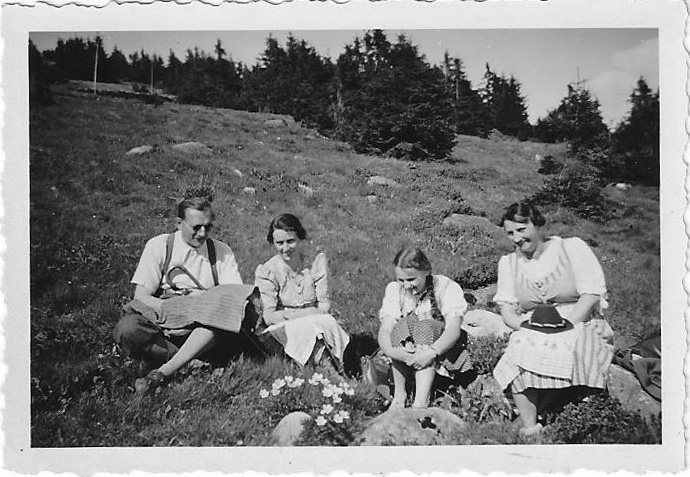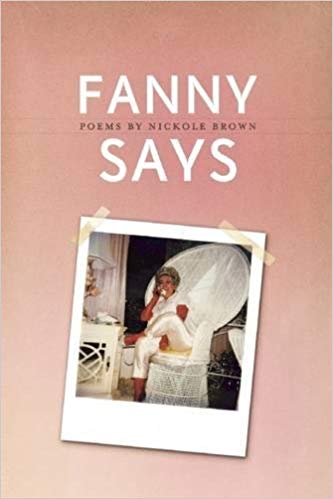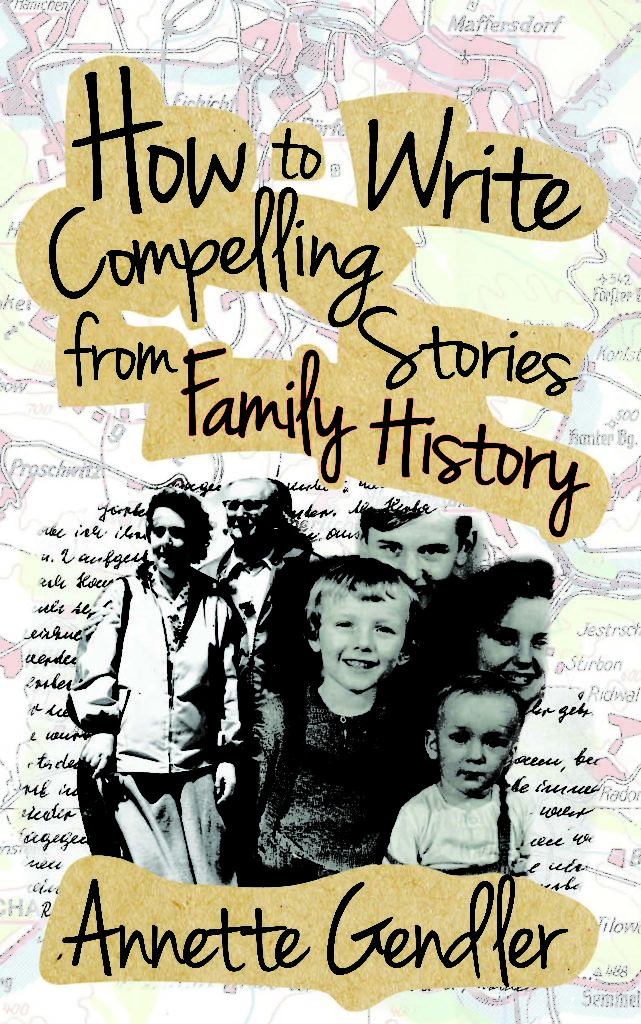
Welcome to installment one of my new advice column where I answer any question readers ask about writing compelling stories from family history.
Jim asks: As a general rule, are you okay with leaving out the blemishes in family stories? (I’m not talking about something horrific that is required to be included in order to make your point.)
My answer:
I think this depends on a) whether that blemish had any consequences that affected later generations, or b) if that blemish was characteristic of a particular person and would help us understand who he/she was.
a) If this blemish, let’s say a bothersome event, crime, transgression, or unfavorable character trait did bring about something that affected later generations, then you can’t leave it out.
If you did, whatever happened afterwards won’t make sense. The whole point of writing a family history story is to illuminate the past and to enable the present generation to better understand their ancestors and thus themselves.
Writing truthful family stories also means portraying the past the way it was and giving us present-day readers an understanding of what life used to be like.
Many behaviors or figures of speech that were acceptable in the 1920s, for example, are not acceptable now. Yet we should not pretend they did not exist, nor should we judge people living in the 1920s with our 2020 standards. When you write this kind of difficult family story, it is your job to portray those who came before you the way they truly were. However, you also need to give the reader enough context to understand them within the world they lived in. That does means you might have to work hard to make believable and understandable something we today would consider repulsive.

As an example, I saw the Tutankhamun exhibit when I was in London in November. He was married, at quite a young age, to his half-sister, Ankhesenamun, the daughter of Queen Nefertiti. Turns out, in Ancient Egypt it was the privilege of the royals and upper class to marry close relatives. The royal blood line was kept in the royal blood line. Thousands of years later, we consider this incest and a punishable crime. Furthermore, we know this leads to genetic degeneration. Many royal houses, including those of Europe up until the 19th century, suffered for this practice of inbreeding.
Nevertheless, we have to look beyond our lens of incest to understand why this was the practice. Only then can we begin to understand who these people of the past were and why they did what they did. The Bible’s Book of Genesis, by the way, is also full of what we consider incest nowadays. But again, we’re talking about Mesopotamia and Canaan more than 5000 years ago. Life was different then.
b) If you’re referring to a character trait that is less than favorable but that was a big part of who this person was, you can’t leave it out.
A great example of how to handle this is Nickole Brown’s memoir in poems, Fanny Says. It is a loving portrait of how her Kentucky-born and –raised grandmother spoke. It captures all her idiosyncrasies, including her racist attitude. Her racist comments to her longtime black household helper, with whom she had an close and comfortable relationship, are particularly shocking.
In the audio book version, Nickole Brown relates who much it pained her to reveal that side of her grandmother. But she also felt that it was a big part of how she spoke and who she was. She was a complex person with a nasty side. Therefore, Nickole had to find a way to show that side of her grandmother, risking that her readers would focus on that. This, however, is not the case. She did a great job of showing the reader the many facets of her grandmother’s personality. In the end, the grandmother’s racism is certainly a blemish but does not come across as her overriding characteristic. Typically, readers will remember the quirky and unique aspects of a character. As a reader, I found the grandmother’s love for Pepsi, Clorox and her grey wig way more interesting and memorable.
c) Lastly, I do think you can omit a blemish in your family narrative if it is of no particular consequence nor a noteworthy characteristic.
Furthermore, if you feel that there isn’t enough material about someone to create a well-rounded character, then a blemish might mark someone as a bad person. In that instance you might choose to omit the one bad thing you do know. Why paint someone in a bad light if you simply don’t have a full picture? Better not to commit an injustice yourself regarding someone who no longer can defend him- or herself.
I address many quandaries of writing about family in my new book How to Write Compelling Stories from Family History. One chapter, for example, is titled “What if your material is too rosy?”
I am, however, happy to answer many more questions, so please submit your question to my Advice Column, and I will answer it in a future installment or a personal email.
*This blog post’s title photo shows my grandparents (the couple on the left) and my great-aunt Resi (right) with her daughter Herta (in the middle) in a good mood, enjoying at a family picnic in the Jizera Mountains in 1939. At this time, however, the Nazi rule and how to deal with it had already driven a wedge into my grandfather’s relationship with his sister Resi. That conflict is central to my memoir Jumping Over Shadows.



What a great idea to start an Advice Column. Super start to the New Year coming up, too!
Thank you, Nancy!
I appreciate this experienced writer giving an in-depth answer to a complicated question. Author Gendler must know how to peel onions because she understands how the perspective of time must be considered when judging and that a deceased person is still deserving of the benefit of doubt. Well done!
Hi Jim, glad to hear you found my response helpful and nuanced.
Wisely said.
I’m glad to find your newsletter in my emails tonight. Really glad and sad pretty much equally. My next writing project could be a caregivers memoir about becoming one for my husband. I’ve been thinking about what, when, why, howand where they will be. My husband had an anger problem which affected our relationship. I’ve been troubled over saying much about this . But it was a part of his personality. And only a few years ago did he tell me why, along with other things I knew more current, in his life that played into it. Because of what you said here , now I know this has to be included in the memoir.
Glad to help, and sorry to hear about your struggles.